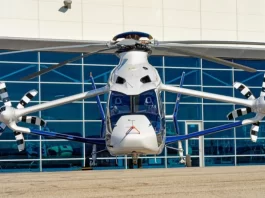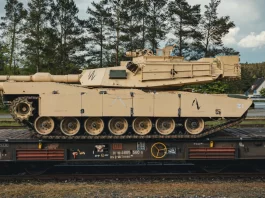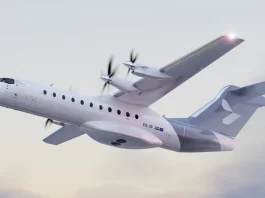The Russian United Shipping Corporation (USC) plans to produce its own marine engines reports Kommersant. USC intends to independently develop a range of low-speed marine engines with a power output of 5–15 MW for medium- and large-tonnage shipbuilding. The preliminary estimate for investments is 200 billion rubles. Similar plans are being considered by the Sinara Group. The proposed range of engines will meet the needs of ships with a deadweight of up to 120,000 tons, necessary for the development of the Northern Sea Route. However, experts believe it would be more logical for Sinara and USC to work together.
USC is studying the possibility of creating a line of low-speed marine engines (LSE) with power outputs of 5, 8, 10, and 15 MW for medium and large-tonnage sea vessels at its own facilities through reengineering, according to sources familiar with the plans. This engine range covers the needs of cargo ships with deadweights between 40,000 and 120,000 tons. Sources also say that USC is currently conducting preliminary project work.
There is a possibility of producing the engines at the Severnaya Verf shipyard, though no decision has been made yet.
According to the sources, the project will require investments of up to 200 billion rubles and should take five to six years to complete.
Sources suggest that Chinese engines will likely serve as the foundation for the reengineering. Last year, the government transferred USC, Russia’s largest ship manufacturer, under the management of VTB Bank. The new management plans to increase the construction of medium- and large-tonnage vessels.
Russian enterprises currently produce engines with a maximum power of up to 7.5 MW, but they lack the higher-power low-speed engines needed for large-tonnage civilian shipbuilding. The supply of foreign engines became impossible after the start of military operations in Ukraine, as Russian shipbuilding came under comprehensive sanctions. Previously, the main suppliers of engines to Russia were Germany’s MAN, Finland’s Wartsila, Switzerland’s WINGD, and Japan’s Engine Corporation.
VTB redirected Kommersant’s inquiry to USC, which declined to comment. The Ministry of Industry and Trade did not respond to Kommersant’s inquiry.
As Kommersant reported on February 13, the Sinara Group is ready to act as a state partner in the project to produce low-speed marine engines with a power output of over 10 MW for gas carriers, tankers, bulk carriers, and container ships. Estimates place the total project cost at 190 billion rubles, and the first prototypes could be ready within five years.
Kommerstant’s sources note that USC intends to carry out its plans for creating LSEs without Sinara’s involvement.
In September, the First Deputy Head of the Ministry of Industry and Trade Vasily Osmakov stated that the ministry aims to create an engineering center for the development of high-power LSEs with Sinara’s participation. “We plan to do this with Sinara, and it’s comparable in complexity to a mini-nuclear project,” said Osmakov. On October 7, Sinara’s CEO Viktor Lesh stated that the company must create a national production of high-power LSEs, which will match or exceed the technical specifications of global analogs, in the shortest possible time.
The key task, according to Nadezhda Malysheva from PortNews, is to develop a unit piston system with a capacity of 2 MW, capable of scaling up to greater power levels. According to her, the proposed range is suitable for all types of vessels, including Aframax-class tankers with a deadweight of up to 120,000 tons, which are necessary for the development of the Northern Sea Route. “These engines will be in demand and can realistically be developed in five years, but much will depend on personnel,” she says. Mikhail Burmistrov, General Director of Infoline-Analytics, believes that it would be more logical for USC to implement the project in partnership with Sinara or Transmashholding, which already has key competencies.






